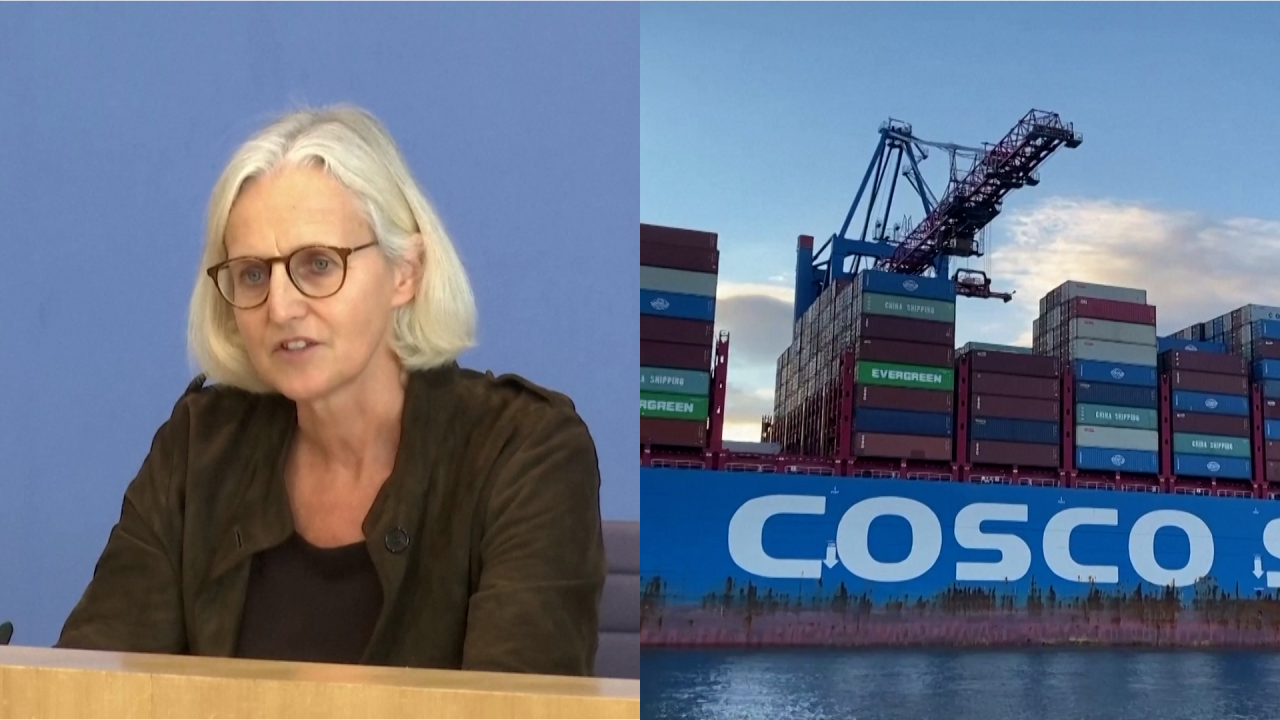
German lawmaker joins talks with Taiwan’s president, criticises Chancellor Olaf Scholz’s ‘unilateral’ China policy
- An eight-member European delegation from the Inter-Parliamentary Alliance on China travelled to Taipei to discuss deeper economic and political ties with Taiwan
- A European MP from Germany’s Green Party, a partner in Scholz’s coalition government, says China policy can’t be ‘unilaterally defined by the chancellor’
As German Chancellor Olaf Scholz embarked on his first visit to Beijing with a high-level corporate entourage, German lawmakers called for stronger trade and political engagement with Taiwan after meeting with the President Tsai Ing-wen in Taipei on Thursday.
Describing Scholz’s trip as one of the “most controversially debated in the last 50 years”, Reinhard Buetikofer, a member of European Parliament from Germany’s Green Party, a partner in the Scholz three-way coalition government, said the country’s China policy could not be “unilaterally defined by the chancellor”.
“I think we could have avoided this if the chancellor had followed the outline that we laid down together. One year ago, we said that Germany’s China policy must be strongly integrated with the US-China policy,” he added, stressing that the “coalition contract” also supports Taiwan’s democracy against “China’s aggression” and its “meaningful participation in international organisations”.

His remarks came after an eight-member European delegation from the Inter-Parliamentary Alliance on China met with Tsai about deepening economic and political ties with Taiwan.
The delegation also included German MP Gyde Jensen from the Free Democratic Party, an alliance partner in the Scholz government.
Established in 2020, IPAC has a membership of more than 200 lawmakers from five continents. The group convened in Washington in September to adopt a communique, encouraging parliamentarians to visit Taiwan and push their respective governments to reduce economic dependence on mainland China.
Buetikofer, who is co-chair of IPAC, said Scholz’s trip to Beijing would drag Germany in the opposite direction, “particularly for its timing” as many people are “afraid that the chancellor might not do or say what should be done and said”.
The Greens in Germany have been pushing for a much tougher line on China. During a G7 diplomatic meeting in Muenster on Thursday, German Foreign Minister Annalena Baerbock, a member of the Green Party, called China “a competitor and, much more strongly, a rival, in view of its understanding of the international order”.
During an official visit to Tashkent, Uzbekistan, on Monday, Baerbock said: “We as the federal government are writing a new China strategy.”
Just weeks after Chinese President Xi Jinping was re-elected as paramount leader of the Communist Party for a third term, Scholz travelled to Beijing with executives from 12 top German companies, including Merck, Siemens and Volkswagen.
Over the past two decades, business interests have heavily influenced the country’s China policy. Last year, their combined exports and imports stood at more than US$255 billion, making China Germany’s top trading partner for the sixth straight year.
Germany is dependent on China for solar panels, computer chips, rare earths and other critical minerals. The bilateral trade directly supports more than 1 million German jobs.
Germany’s top 10 listed companies are reliant on China for a significant share of their revenues. According to the Rhodium Group, a New York-based research institute, automakers BMW, Mercedes-Benz and Volkswagen and chemical giant BASF accounted for one-third of all EU investments in China in the past four years.
A report released in August by the German Economic Institute showed that German businesses invested more than US$9 billion in China in the first half of this year, a record high.
And despite Russia’s invasion of Ukraine, which has led Europe to rethink the dangers of economic dependence on authoritarian countries, Scholz allowed Cosco, a Chinese state-run shipping company, to buy a 24.9 per cent investment stake in one of four container terminals in the Port of Hamburg in October.
Said Jonas Parello-Plesner, a visiting fellow in German Marshall Fund’s Asia programme: “It seems that the policy of Scholz – who was finance minister in chancellor Angela Merkel’s last government – on China is running on autopilot.”


